The Evolution of Voice Acting in Video Games
7 January 2025
Video games have come a long way since the days of beeping sound effects and pixelated sprites. Nowadays, it’s not just about pressing buttons—it's about fully immersing yourself in a world teeming with life, drama, and narrative depth. A significant part of what makes modern games so immersive is voice acting. But voice acting in video games wasn’t always as groundbreaking as it is today. In fact, its history is a wild rollercoaster of crude beginnings, growing pains, and eventual mastery.
So, how did we go from pixelated characters with robotic bleeps to emotional performances that bring entire worlds to life? Let’s dive deep into the evolution of voice acting in video games.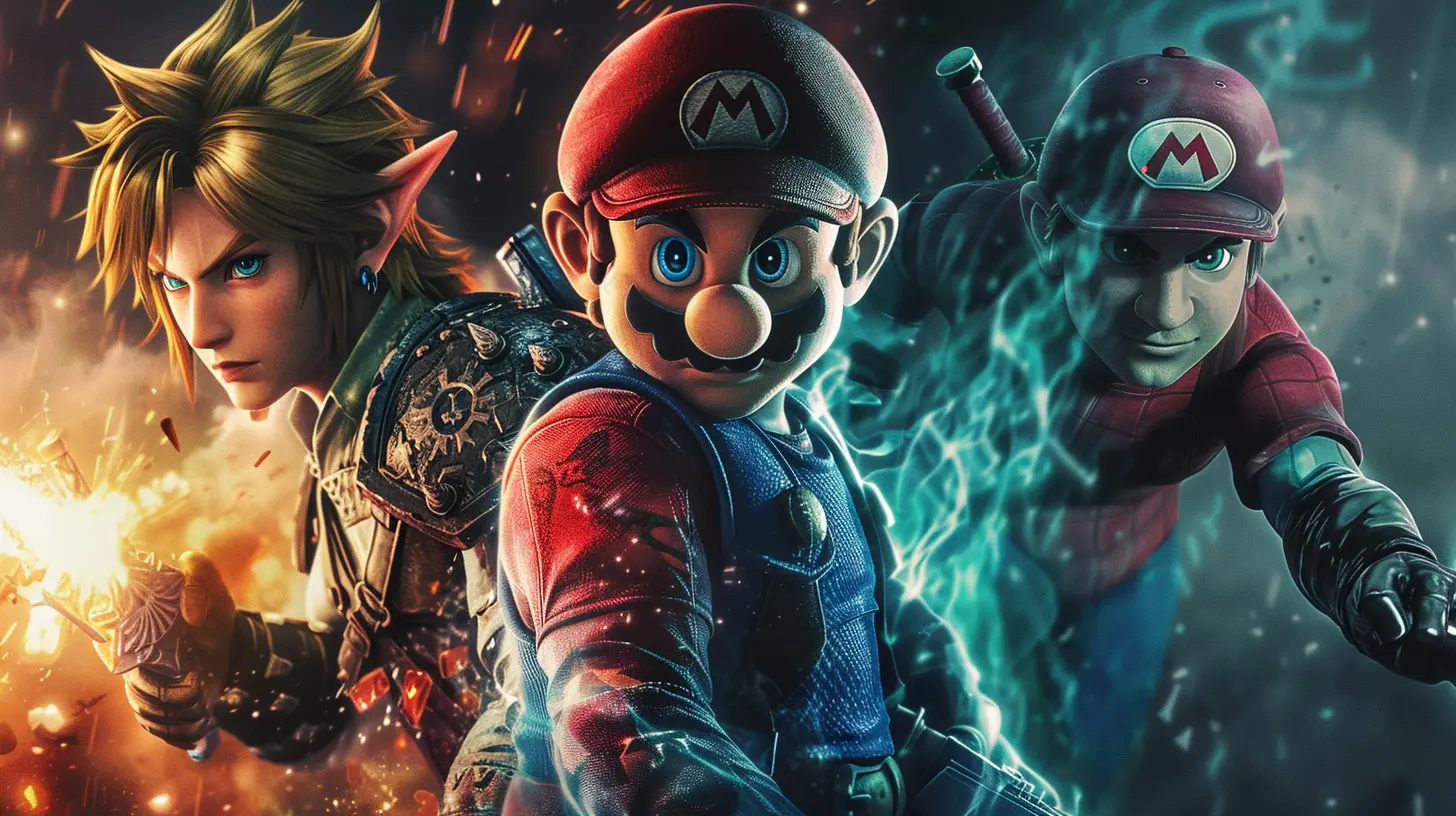
The Early Days – Beeps, Boops, and Silence
Back in the 1970s and early 1980s, voice acting wasn’t even on the radar. Instead, you had simple sound effects—bleeps, bloops, and maybe some music if you were lucky. Games like Pong and Space Invaders were revolutionary for their time, but let's face it, there wasn’t much room for voice acting. Why? The technology just wasn’t there. Storage space was limited, and audio files were way too large to fit into the cartridges or floppy disks of the time.The first few attempts were, let’s say, humble. Take 1983’s Berzerk, a game that added robotic speech synthesized audio. Its iconic line, “Intruder alert! Intruder alert!” was an exciting glimpse into what was possible but still felt mechanical and, well… lifeless. It was a start, though—a baby step that hinted at what the gaming world could one day achieve.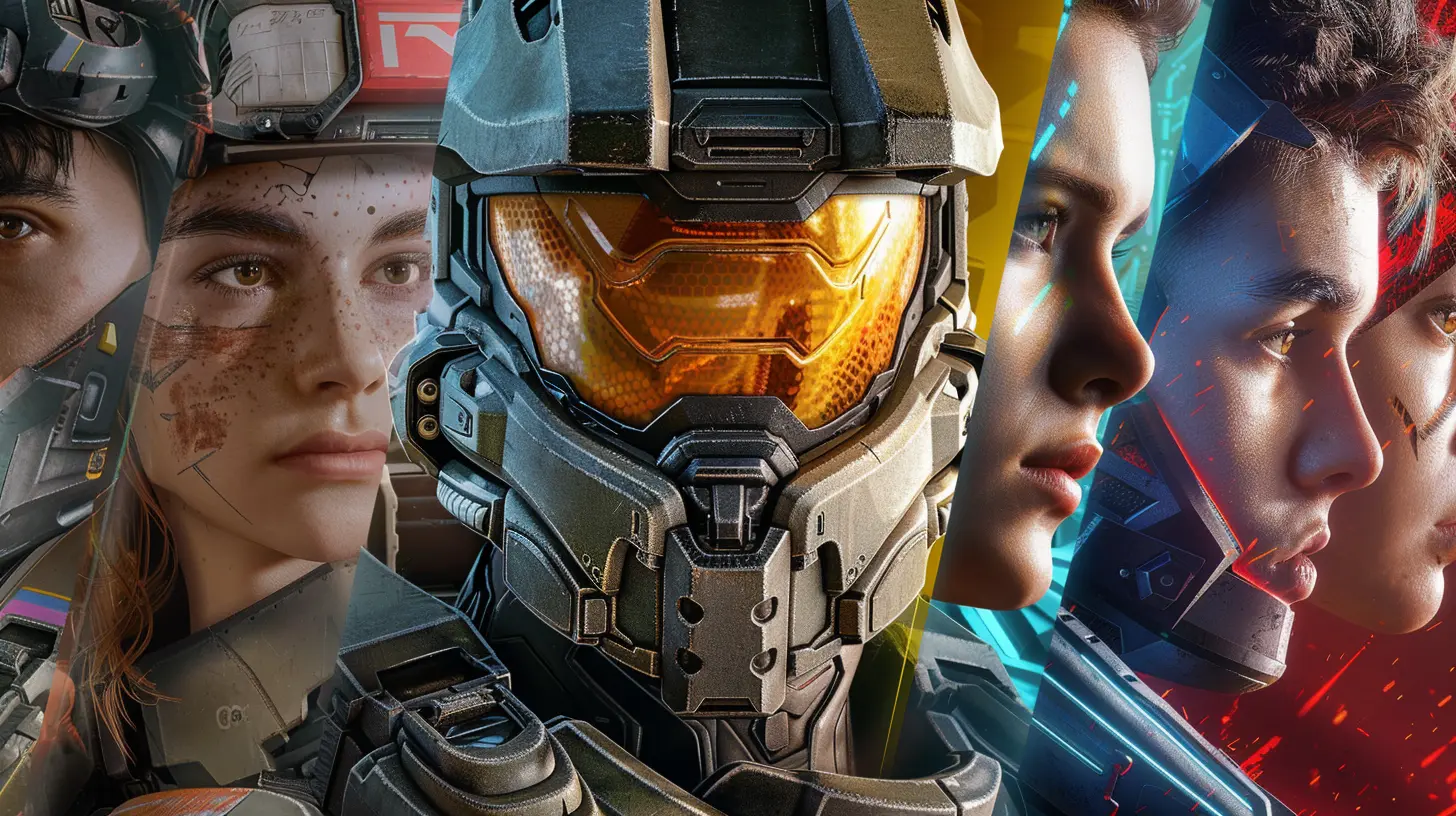
The Rise of Digitized Voices – Breaking the Silence
As the 1980s rolled in, developers started experimenting more with digitized voices. This wasn’t just a gimmick; it was a way to grab attention and push boundaries. Games like Gauntlet (1985) famously introduced short voice clips like “Wizard is about to die!” These lines, while short and grainy, became iconic. Sure, they sounded like they were recorded through a tin can, but players loved them. It was as if these characters were coming to life for the first time.The real game-changer came in 1991 with Street Fighter II. Each character had their own voice lines for moves and victory quotes, which gave them personality. Suddenly, Ryu’s “Hadouken!” wasn’t just a button combo—it was his voice, his identity.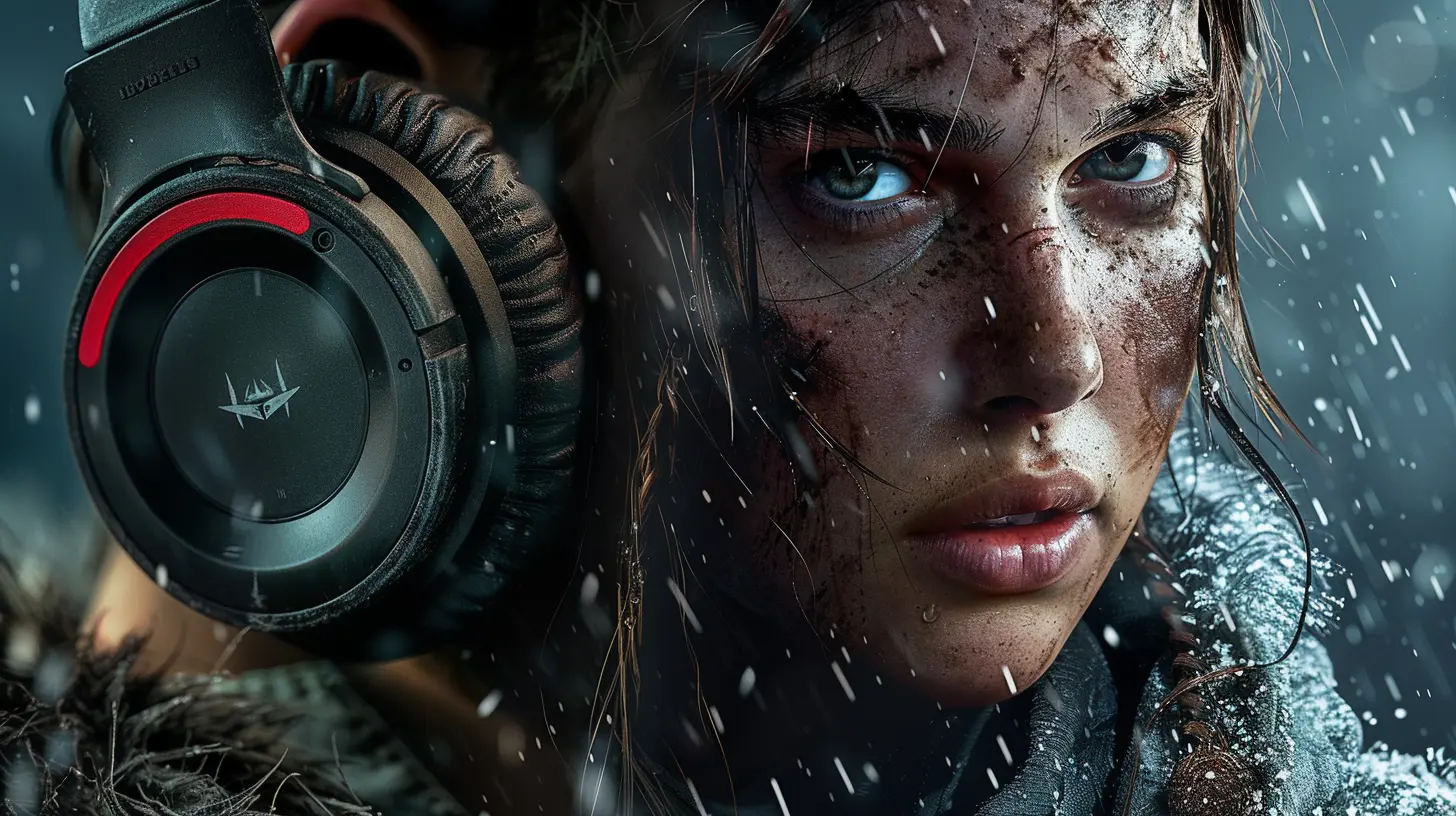
The CD-ROM Revolution – Enter Full-Fledged Dialogue
The 1990s were when things really started to get interesting. With CD-ROMs becoming more common, games could pack in a LOT more data, including high-quality audio. This opened the floodgates for voice acting.One of the earliest examples of full voice acting came with Lunar: The Silver Star in 1992. This RPG featured beautifully voiced cutscenes that elevated the emotional stakes of its story. Around the same time, Gabriel Knight: Sins of the Fathers (1993) turned heads with its all-star cast, including Tim Curry and Mark Hamill. For the first time, voice acting in games wasn’t just functional—it was artistic.
But the shift wasn’t always smooth. Remember the infamous Resident Evil (1996)? Despite its groundbreaking gameplay, the voice acting felt… let’s just say campy. Lines like “You were almost a Jill sandwich!” became memes before memes were even a thing. Still, it was a stepping stone. Gamers wanted voice acting; developers just hadn’t mastered it yet.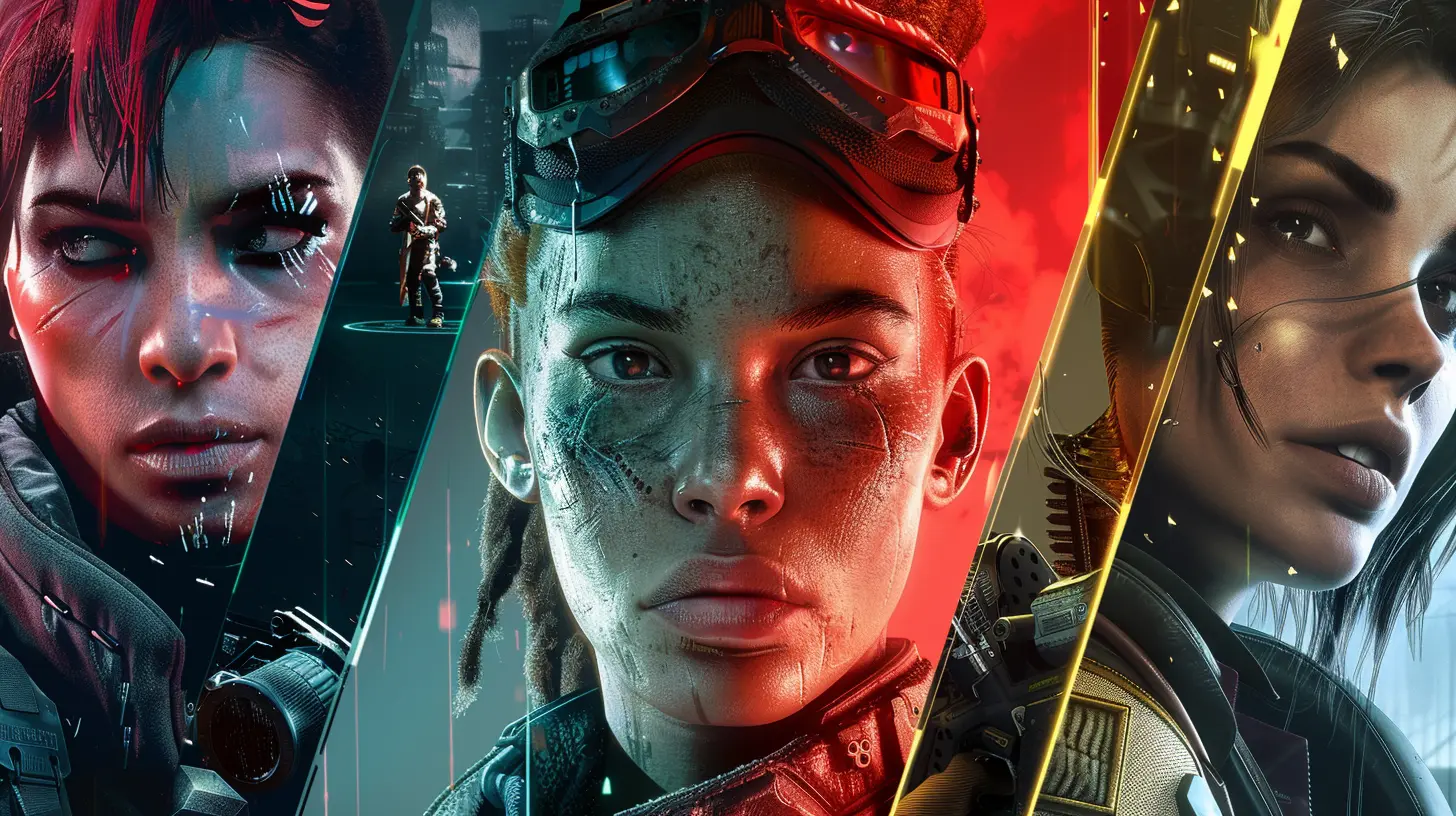
The PS2 Era – Voices Get Real
As hardware capabilities grew, so did the potential for high-quality voice acting. By the time the PlayStation 2 and Xbox rolled into town, developers weren’t just throwing in voice acting as an afterthought—it was a core part of the experience.Games like Metal Gear Solid 2 (2001) and Final Fantasy X (2001) showcased what voice acting could truly bring to the table. Who could forget Tidus’ awkward laugh scene in Final Fantasy X? Sure, it became a meme, but it also showed that developers were beginning to experiment with emotional nuance. Meanwhile, Metal Gear Solid proved that voice acting could drive stories that rival Hollywood films.
Not to be outdone, Western developers stepped up their game too. Grand Theft Auto: Vice City (2002) brought in Hollywood actors like Ray Liotta to deliver compelling performances that elevated open-world storytelling. Characters suddenly felt like real people, and games were more immersive than ever.
The Modern Era – A Cinematic Leap
Fast forward to today, and voice acting in video games feels more like Hollywood than ever before. We’re living in an era where performances are so nuanced, so powerful, they can leave you with tears streaming down your face or have you hysterically laughing.The introduction of performance capture—where actors’ facial expressions, body movements, and voices are recorded simultaneously—has been a complete game-changer. Games like The Last of Us and Red Dead Redemption 2 don’t just have voice acting; they have performances. Ashley Johnson’s portrayal of Ellie or Roger Clark’s turn as Arthur Morgan are on par with the best performances you’ll find in film or TV.
And it’s not just about the big blockbuster titles. Indie games like Hades and Firewatch prove that smaller studios can deliver incredible voice performances that linger in your mind long after the credits roll. Whether it’s Supergiant Games’ Darren Korb voicing Zagreus with sly charm or the tender exchanges in Firewatch, voice acting has become a vital tool for storytelling in every corner of the industry.
The Impact of Diversity in Voice Acting
Another incredible development in recent years is the push for diversity in voice acting. Developers are increasingly casting actors who resonate with the characters they’re portraying. For instance, Assassin’s Creed Origins cast Egyptian actor Abubakar Salim as Bayek to ensure authenticity. Similarly, games like Spider-Man: Miles Morales and Ghost of Tsushima have embraced representation, with actors from appropriate cultural backgrounds adding depth and realism.This move towards inclusivity isn’t just important; it’s transformative. It ensures that stories feel authentic and relatable, connecting with gamers on a deeper level.
Challenges Along the Way
Of course, the rise of voice acting hasn’t been without its challenges. Crunch culture in the gaming industry often puts enormous pressure on voice actors. There have also been several high-profile disputes over fair wages for voice work, with actors demanding that their incredible contributions be valued appropriately.Another challenge? Balancing voice acting with player agency. In games where choice matters—like Mass Effect or The Witcher 3—actors need to record hundreds of different lines to account for every possible decision. It’s a Herculean task, but when done right, it makes the game world feel alive and responsive.
What’s Next for Voice Acting in Games?
So, where do we go from here? With AI and machine learning, there’s been buzz (and concern) about AI voice acting. While technology might help fill in minor roles or NPC chatter, it’s unlikely (and frankly, undesirable) to replace human actors entirely. Why? Because voice acting is about emotion, and AI just can’t replicate the human touch.Looking ahead, we’re likely to see even more innovation in performance capture, with games becoming even more cinematic and character-driven. As storytelling continues to evolve, voice acting will remain at the very heart of it, breathing life into experiences we can’t get anywhere else.
Wrapping Up
Voice acting has become a cornerstone of modern gaming, transforming characters from lifeless avatars into living, breathing personalities. From the scratchy audio clips of the early days to the cinematic masterpieces of today, the evolution of voice acting shows just how far games have come. And honestly, it’s a testament to how this medium has matured into an art form that rivals any other.So the next time you’re swept away by a heartfelt monologue or a hilarious quip in your favorite game, take a moment to appreciate the actors behind the voices. They’re the unsung heroes of our gaming adventures, and their contributions have truly changed the way we play.
all images in this post were generated using AI tools
Category:
Voice Acting In GamesAuthor:

Tayla Warner
Discussion
rate this article
8 comments
Maris McAlister
Great read! Voice acting has truly transformed gaming—bringing characters to life like never before!
January 31, 2025 at 3:43 AM

Tayla Warner
Thank you! I’m glad you enjoyed it. Voice acting has indeed revolutionized storytelling in gaming!
Brooks Lamb
From whispers to roars, what secrets lie in the voices we hear?
January 25, 2025 at 5:25 AM

Tayla Warner
Every voice tells a story; as the medium evolves, so do the emotions and depth behind those whispers transforming into powerful roars.
Amalia Weber
Exciting journey! Voice acting truly enhances gaming experiences!
January 16, 2025 at 4:33 AM

Tayla Warner
Thank you! I completely agree—voice acting adds depth and immersion, making games even more engaging.
Zelda Holland
Voice acting in video games has skyrocketed from robotic utterances to immersive performances. Players deserve top-notch talent that enhances storytelling. Let’s celebrate the art of voice acting—it's not just an accessory anymore; it's central to the gaming experience. Game on!
January 15, 2025 at 6:03 PM

Tayla Warner
Absolutely! Voice acting has become a vital part of gaming, elevating narratives and player immersion. Let's continue to honor this art form as it shapes the future of storytelling in games. Game on!
Garrett McIntosh
Voice acting in video games has transformed from mere soundbytes to powerful performances that immerse players in rich narratives. As technology evolves, so too does our connection to characters. This journey highlights not just the art of storytelling, but the profound impact that voice can have in shaping unforgettable experiences. Game on!
January 14, 2025 at 5:11 AM

Tayla Warner
Thank you for your insightful comment! Indeed, the evolution of voice acting has significantly enhanced storytelling and player immersion in video games. Game on!
Phaedra McNeely
This article beautifully highlights the transformative journey of voice acting in gaming, showcasing its profound impact on storytelling and player immersion.
January 11, 2025 at 5:48 PM

Tayla Warner
Thank you! I'm glad you enjoyed the article and appreciate the importance of voice acting in enhancing storytelling and immersion in gaming.
Carmel Lewis
Voice acting in video games has transformed storytelling, bringing characters to life in ways we once only dreamed of. It’s inspiring to see how creativity and technology unite to enhance our gaming experiences!
January 8, 2025 at 3:53 AM

Tayla Warner
Absolutely! The fusion of creativity and technology in voice acting has indeed revolutionized storytelling in video games, allowing for deeper character development and immersive experiences. Thank you for your insightful comment!
Jett Cole
From beeps to Broadway: voices that level up!
January 7, 2025 at 3:50 PM

Tayla Warner
Thank you! It's fascinating to see how voice acting has transformed from simple beeps to the rich performances we enjoy in today’s gaming narratives!
MORE POSTS

Major Performance Improvements in the Latest Patch
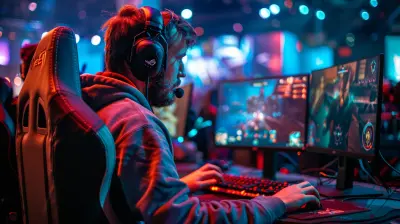
Understanding Esports and What It Means for Young Gamers

Open Sandbox Worlds: Where Your Creativity Knows No Limits
From Pixels to Performance: The Evolution of NPC Voices

Interactive Worlds: How NPCs and AI Respond to Creativity in Sandbox Games

How Elements of Randomness Add Spice to Platformer Games